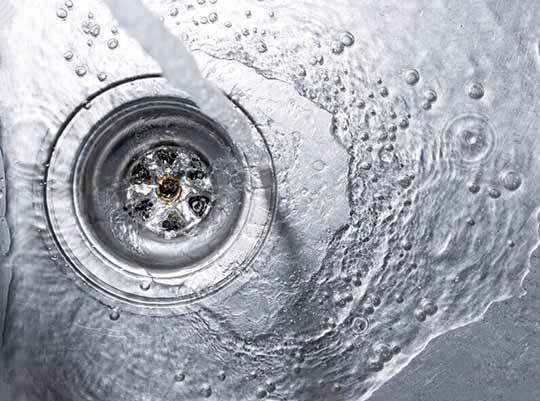
Plumbing problems and their drain cleaning mistakes are common issues in homes, says Action Properties, and one of the most common plumbing problems is a clogged or slow moving drain. Drain clogs happen because of solids and semi-solid materials in the wastewater that flows through your drainpipes. Home drains are not designed to handle solids apart from human waste, toilet paper and small food particles.
These solid or semi-solid materials can range from FOGs (fats, oils and grease) to diapers, soap scum, human or pet hair, small toys, coffee grinds, wipes, eggshells, starchy foods, sanitary products, and more. All these cause problems inside the drains; the issues can be a minor blockage that is easily removed or as severe as a backed-up sewer line.
Whatever the cause of the drain or sewer issue in your home, you will find a way to solve it.
But how you choose to do this matters. Your solution will either solve the problem or defer it to the future when it may be more expensive. To avoid this, you should be aware of these common mistakes homeowners make when cleaning their home’s drains.
Common mistakes homeowners make when cleaning their drains and sewers
Use of harsh chemical drain cleaners
Chemical drain cleaners offer a quick way to remove clogs from drains, but they are a temporary solution that can create permanent problems. Drain cleaners contain powerful corrosives that eat through the blockage inside a pipe. However, they make a hole in the clog while leaving most of it intact. With time the blockage happens again and gets progressively worse. Chemical drain cleaners also damage pipes because their corrosives don’t distinguish between the plumbing and the clog inside them.
Poking the clog with homemade tools
Homeowners are often told to remove blockages from their home’s drains with homemade tools like a clothes hanger that has been bent into the shape of an auger. These tools can help if the item blocking the drain is visible, and you can see what your homemade tool is doing. Improvised augers or drain snakes, and other homemade tools can damage your drain by poking holes in the pipes or weakening pipe connections. If you stick something like wood inside your drain, it can break off and create worse problems.
Wrong use of augers
Augers and drain snakes are great for removing clogs if they are close to the opening of a drain. But to get the most out of them, you must use them properly and be sure you are using the right size of auger or snake. There is a wrong and a proper way to use augers and snakes. Avoid forceful and sudden movements, such as yanking and prodding. Turn the tool slowly and evenly inside the drain. Also, an auger or snake that is too small can get stuck inside the drain, and if it is too large, it can cause leaks in the plumbing.
Solving problems temporarily
Just because a drain starts flowing after you applied your chosen solution doesn’t mean the problem is solved. What you have gotten may only be a reprieve. That is what DIY drain-cleaning solutions like using chemical cleaners and store-bought drain snakes do. They do not remove the clog inside your pipes; they make a hole in the clog where water can pass. The offending material remains in the pipes and will continue to slow water flow through your pipes. That makes the drains more liable to clog and leak.
Using a plunger in the wrong way
Firstly, there are two types of drain plungers; sink plungers (which have a bell shape) and toilet plungers (which come with a flange). Using the right plunger for the right drain will determine the tool’s effectiveness. Another issue when using a plunger is knowing how to use it properly. Plungers work only when there is a tight seal between the plunger and the drain that is being cleaned. The seal creates the suction that enables the plunger to pull out the material blocking the drain. The inappropriate use of the plunger can push the obstruction into the drain.
Failing or delaying to call a plumber
You should know which drain issues in your home that can be solved by you and which ones require the attention of a plumber. Unless you are a professional plumber, your home’s drains will eventually need the attention of a professional. Timing is critical when hiring a plumber. You can call the expert when issues are minimal and easy to fix or wait until your drain problems become major issues that cost a ton of money to solve.
Always keep in mind that the ultimate goal of using DIY solutions for plumbing issues is to save time and money. Remember that you lose time and money when your DIY solutions cause even worse plumbing problems.
